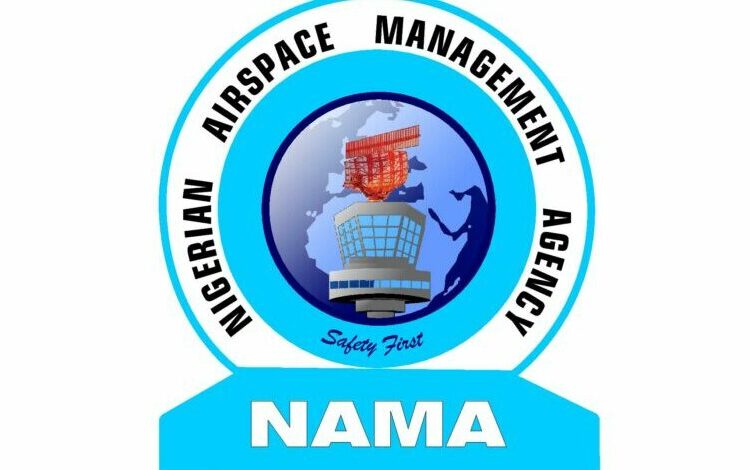
The Nigerian Airspace Management Agency (NAMA), on Tuesday, conducted an Aircraft Emergency Table Top Exercise to enlighten aviation stakeholders on how to manage aircraft emergencies and disasters.
The exercise which took place at the Murtala Muhammed International Airport (MMIA) brought key stakeholders in emergency management and Search and Rescue Units drawn from all the aviation agencies, Nigeria Customs Service (NCS), Nigeria Immigration Service (NIS), Department of State Security (DSS), Federal Road Safety Corps (FRSC), Federal Fire Service (FFS), National Emergency Management Agency (NEMA), Lagos State Emergency Management (LASEMA), Airline Operators of Nigeria (AON), Lagos State Ambulance Services (LASANBUS), Nigerian Police Force (NPF).
Declaring the exercise open, the Director of Air Traffic Services (ATS) at the Nigerian Airspace Management Agency (NAMA), John Tayo, urged all stakeholders who attended to take the exercise seriously.
Tayo equally urged the media to take the exercise seriously and report it widely, pointing out that other agencies had done similar exercises but were not adequately captured in the media space.
Emphasising that Search and Rescue (SAR) is everybody’s business, he said, “This morning, we are going to combine two things. To get a fruitful result, we want to separate the stakeholders meeting and the aircraft emergency exercise.”
The Director, who was represented by the General Manager, SAR, NAMA, Sunday Iwalaiye streamlined the Emergency Tabletop Exercise into two sessions: “Search and Rescue Units and Responsibilities” and “Arrangement Into Groups of Search and Rescue Units According to Their Responsibilities.”
“We cannot start the exercise without knowing the responsibilities of each agency. Any Search and Rescue involving an aircraft is an aeronautical emergency.”
In his remark, regional general manager, South West, FAAN, Olatokunbo Arewa commended the coordinators for organisers of the Exercise, urging all participants to support the exercise.
“This is a thing we should all support. Although no one wants emergencies to happen, it does happen. I want all stakeholders to take notes on what to do when emergencies occur”, Arewa added.
Alhaji Safo Baba Jiya, a representative of the Nigerian Civil Aviation Authority (NCAA), also commended the coordinators.
Jiwa, who dwelt elaborately on the importance of safety, said, “Safety is paramount for us at NCAA. We are here to learn. Let us be mindful of what we are doing here today”.
In his remark, Quality Assurance Manager (QAM), MMIA, Onohwoakpo Chris said that, although many stakeholders don’t want emergencies, “We gathered here to learn about what we don’t ever want to happen in aviation”.
Head of Search and Rescue Unit, National Emergency Management Agency (NEMA, Lagos Operations Office), Mrs. Ibitayo Adenike equally commended the exercise.
Ibitayo said, “The Last disaster in global aviation wasn’t expected. We have representatives of practically all airlines. I appreciate the efforts put into this exercise. Let us put our minds together to synergise and identify areas of shortcomings and make progress so that whenever there is an emergency, we will do the right thing”.
To Engr Jamin Olayinka Salami of the Lagos State Emergency Management Agency (LASEMA), he was very pleased with the exercise as it is something that stakeholders need to be doing often.
Salami, however, insisted that what is most important is how we prevent disasters. It will help us to prepare more for eventually.
Explaining the essence of the exercise, Search Mission Coordinator, MMIA, Igberaese David, who coordinated the exercise, said that NAMA have been conducting joint operations with the National Emergency Management Agency (NEMA) NIMASA, and they decided to come together for a better performance when an incident occurs.
Igberaese said, “The goal is rescuing the greatest number of people in the shortest possible time.
According to the International Civil Aviation Organisation (ICAO), 24 24-hour watches must be provided in the Search and Rescue operations.
“Search and Rescue is everybody’s business because when it occurs in remote areas, the farmers eventually become the first responders.”, Igberaese added.
The high point of the event was the activation of the Search and Rescue scenario, which was terminated after some minutes of demonstrations before the debriefing of the exercise.
SOURCE : LEADERSHIP



